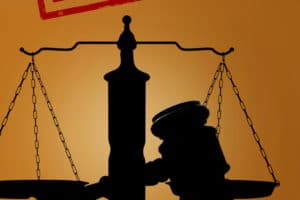
In Texas, any criminal conviction stays on your record forever. Potential employers and landlords, for example, will have access to these public records and, in most cases, they can legally reject you from employment opportunities and even house rentals as a result. Your conviction can prevent you from holding most professional licenses, obtaining a student loan, or even getting into a good school.
You have served your sentence and paid your fines, yet your criminal record continues to punish you. What can you do? You can contact an expunction and non-disclosure lawyer in Grand Prairie to determine whether you might be able to get your criminal record cleared or sealed.
Call the Law Offices of Randall B. Isenberg today to get started: 214-696-9253.
How Do You Clear Your Record?
Expunction is the process of removing an arrest from your public record.
To get a court to expunge your record, you must first identify the correct court, and then petition that court using a fairly complex process. Depending on where your arrest occurred and what crime it concerned, you may have to submit your request to a county, city, or district court.
On the petition, you must name as respondents every individual or entity that may have your record as well as anyone the incident in question affected.
Having an expunction lawyer complete the petition on your behalf will ensure that the documents are complete and accurate; otherwise, errors or incomplete petition forms may sidetrack your efforts.
If your application was correct and complete, the court will schedule a hearing. At the hearing, you must prove you meet the criteria for expunction. Respondents may also testify as to why they believe your record should or should not qualify for expunction.
What Events Qualify for Expunction?
Only certain types of charges qualify for expunction. These include:
- Arrests for which you never faced charges
- Criminal charges that the court later dismissed
- Most misdemeanor juvenile incidents (including alcohol offenses that occurred when you were a minor)
- Convictions that were overturned on appeal
- Convictions for which you were pardoned
Does Your Record Qualify for Expunction?
If you went to trial for the offense in question, but the court either pardoned or acquitted you, you likely qualify for expunction as long as the court never convicted you for another offense related to that incident.
If you never went to trial, you may qualify for expunction as long as:
- The court never convicted you for that offense;
- The arrest was not for violating probation;
- You did not flee while on bail; and
- The court never gave you probation for that offense.
You must also prove the following:
- The court dismissed charges; OR
- The court voided the charges; OR
- The prescribed waiting period expired; OR
- The statute of limitations expired; OR
- The prosecution no longer needs your records
Due to the complex nature of the conditions of expunction, talking with a lawyer is the best way to determine if your record qualifies.
How Do You Seal Your Record?
A non-disclosure order facilitates the removal of your information from the public record only. This allows you to state that you have never been convicted of a crime.
It is important to note the records will remain available for the review of the courts, law enforcement agencies, and any others who may require access.

What Events Qualify for Non-Disclosure?
For Class B misdemeanors and any offense less serious, you likely qualify for a non-disclosure order if you completed a probationary or deferral program.
Exceptions include:
- Domestic and family violence
- Injury, abandonment, or endangerment of a child
- Injury to an elderly or disabled person
- Kidnapping
- Sex crimes
- Stalking
- Violation of a protective order
You cannot petition for a non-disclosure order until the prescribed waiting period expires. You also may not have since been convicted for any other criminal offense.

Expunction and Non-Disclosure Prescribed Waiting Periods
Expunction
To obtain a full order of expunction, you must wait to make the request until the statute of limitations expires for the offense in question.
You can request an order of expunction before the statute of limitations expires. However, the prosecutor in your case will retain your records until that time, even if the court approves your expunction request.
The required waiting period to apply for an order of expungement is:
- 180 days from the date of arrest for a Class C misdemeanor
- 1 year from the date of arrest for Class B and Class A misdemeanors
- 3 years after arrest for felonies
Non-Disclosure
For misdemeanor offenses, you can petition for an order of non-disclosure as soon as you complete probation or deferral, as long as the offense did not involve violence, weapons, or sex crimes.
If your crime did involve one of these offense categories, you must wait 3 years after the completion of probation or deferral to petition for non-disclosure.
Once you complete probation or deferral for a felony offense, you must wait for 10 years after the completion of probation or deferral to petition for non-disclosure.
When the court approves your expunction or non-disclosure order request, the court handles notifying all parties who hold the record, and directs them to purge or seal the information. This process can take up to a few months. However, to ensure that all respondents take the required action, your expunction and non-disclosure lawyer can follow up to verify.
Consult an Expunction and Non-Disclosure Lawyer to Learn More
Hiring a lawyer to handle this complex process can take some of the stress and confusion out of seeking an expunction or order of non-disclosure. Your lawyer will be familiar with the process and understand how to prepare and submit the petition as well as following up to ensure that your records get handled in accordance with the court’s direction.
Contact the Law Offices of Randall B. Isenberg today at 214-696-9253 to schedule your complimentary consultation.










